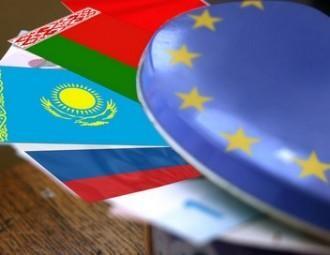Deputy State Secretary of the Union State: We would like EEU to expand the scope of activities

He noted the importance of signing a treaty to create the Eurasian Economic Union, which officially comes into operation from January 1, 2015.
The Russia-Belarus Union State is developing in a dynamic way, Deputy State Secretary of the Union State Ivan Bambiza told a news conference at an arts festival in Belarus’ northeastern city of Vitebsk timed for the 15th anniversary since creation of the Union State between Belarus and Russia.
“The dynamics of the Union State’s development is very good. The two countries’ heads of state have met seven times this year alone,” Bambiza said, noting that also the countries’ heads of government met repeatedly.
Many problem issues, scheduled for discussion at a meeting of the Russia-Belarus Union State Council of Ministers, had been resolved in the regular course of work, he said, adding that the council meeting would be held this autumn.
Bambiza noted the importance of signing a treaty to create the Eurasian Economic Union, which officially comes into operation from January 1, 2015. He added though that the scope of the Union State’s activities was much broader.
“We have common social policy providing equal conditions to the two countries’ citizens in health services and education. The countries closely cooperate in military and security spheres,” he said, noting that the Eurasian Economic Union regulated trade and economic relations of Belarus, Russia and Kazakhstan.
“The Eurasian Economic Union aims to form an economic platform,” Bambiza said. “We would like this union to expand the scope of activities in the future.”
Let us recall that the Union State of Russia and Belarus is a supranational entity formed in 1999 as a unique attempt at political and economic integration among the former Soviet republics.
-
03.01
-
07.10
-
22.09
-
17.08
-
12.08
-
30.09








































